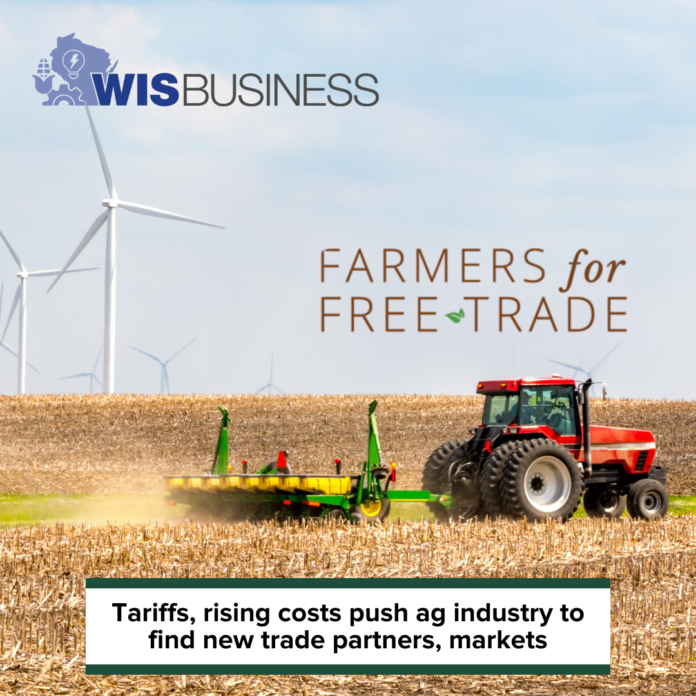Tariffs and rising input costs for farmers are pushing Wisconsin’s ag industry to find new trade partners and new ways to use crops, farmers say.
China this year placed no orders for soybeans from the U.S. amid the Trump administration’s ongoing trade war with the nation, which previously imported roughly two-thirds of the state’s crop.
The state produced just over $1.02 billion in soybeans last year, just under the $1.04 billion in hay and haylage. Corn led the state with $2.27 billion in production.
Sara Stelter, the former president of the Wisconsin Soybean Association, during a Farmers for Free Trade listening session in Westby said the ag industry is doing everything it can to find new opportunities for the market, and the soybean market decline is also impacting the prices of other crops.
“What people don’t understand … is when the markets crash for corn and soybeans, it crashes all our markets for everything,” Stelter said. “Because our contracts for vegetables are based off the grain markets. It doesn’t make sense, but they’re in competition with acres for grain, so that’s why they always follow the grain markets.”
Some new markets soybean farmers are looking at include sustainable aviation fuel, biodiesel for trains, wood glue and other industrial products, firefighting foam and replacing petroleum-based oil with soybean oil in more models of Goodyear tires.
“So we’re doing everything we can to look at our markets on a domestic level,” she said.
The United Soybean Board, which Stelter is a director on, is doing research to combat anti-seed oil rhetoric coming from Health and Human Services Secretary Robert F. Kennedy Jr.’s Make America Healthy Again effort, she said.
Sen. Brad Pfaff, D-Onalaska, said he’s backing a bill that would incentivize farmers to help build out the soybean-based aviation fuel industry.
“If you’ll remember in Wisconsin in the early 2000s, we really went gung-ho when it came to corn-based ethanol,” he said. “You, as farmers, helped build out that industry. The same idea [is] here as it comes to building out sustainable airplane fuel.”
But the Senate Agriculture and Revenue Committee member also noted the aviation fuel market alone is not going to replace the lost revenue from international exports.
Farmers for Free Trade Executive Director Brian Kuehl also noted the rising costs of steel, aluminum, fertilizer, chemicals, tractor parts and other farm inputs only adds to the difficult time Wisconsin farmers are having right now.
“You can’t keep doing that,” he said. “That’s a recipe for losing farms, and that’s what we’re starting to see.”
One way to help turn the situation around is to hold onto current major export partners, such as Mexico and Canada, and work on gaining new partners.
“That’s got to be the game plan,” Kuehl said. “Take the markets we have, open new markets. That’s how we get stronger. And this trade war, we need to bring it to a rapid end, because right now farmers are getting squeezed, and we’re hearing that all across the United States.”
See a recording of the event here.







